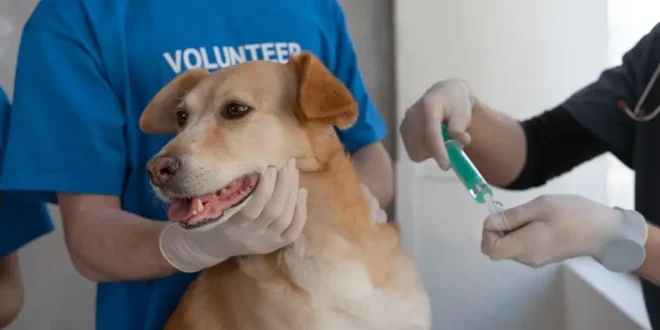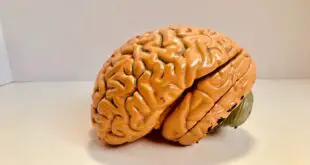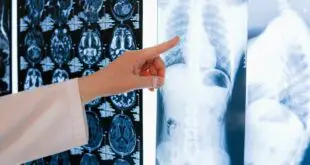If you are curious about taking your dog’s drugs, you might want to know what happens if a human eats dog medication. In a household with many medications, it is easy to mix up the dog’s drugs with those of humans.
Sometimes, one may fall ill, and we might accidentally administer the dog’s medication to them. But what will happen if they take the dose?
Let’s find out what happens if a human eats dog medication, list the dangers of doing so, and find better ways to store medication.
So, What Happens If A Human Eats Dog Medication?
If a human eats dog medication, they might be fine, throw up, pass out, or die. It will significantly depend on the medication and the amount they have eaten. If the dog is large, then there would be a potential overdose.
The effects of a human eating dog medication can be mild to severe.
Why Dog Medication Can Be Dangerous
In 2016, a survey on the use of antibiotics in the United States found that around 4% of adults reported using their pet’s antibiotic medication. However, this finding wasn’t the focus of the study.
If you want to know why a dog’s medication can be extremely dangerous, it is essential to understand that vets always prescribe medication according to your dog’s needs.
Even if the medication has the right ingredients to treat a human, it might still have some variation to make it work efficiently on dogs.
Nonetheless, starting on a dog’s medication might deny you the chance to begin appropriate treatment from a health professional early.
Late treatment could seriously damage your health now and in the future. For the same reasons, you should never allow your dog to take human medication.
If you take your dog’s medication willingly or accidentally, here is what you should do.
What To Do If You Take Your Dogs Medication
Call your nearest poison information center for guidance and assistance. Please take note of the medication you have taken, such as the name, the dosage, and the warnings on it.
Contact your vet or doctor for further guidance if you can’t connect to the nearest poison control center. Properly explain what you have done in detail, taking note of the time, dosage, and name.
Follow the medical advice properly without assuming anything. Most medical professionals will advise you to drink a lot of water and induce vomiting.
The specific actions you must take will significantly depend on the medication. Some medications won’t affect you, while others will heavily shake you. Therefore, you should quickly reach out to medical professionals before you make matters worse.
Tips To Keep Medication Safe
After surviving the incident, you must ensure that you or anyone else in your household never takes a dog’s medication. You must learn to keep the dog and human medication safe.
Here are some of the tips you could implement to prevent such accidents from ever occurring again:
1. Label The Medications Properly
Ensure you will label your dog’s medication as well as a human medication. Therefore, when someone accidentally stumbles upon any of the meds, they might not end up confused between the two.
On your dog’s medication, indicate its name and put the warning that it is not for human consumption. For human medication, it is best to indicate who they are for and what they are.
2. Store In Different Locations
You should always expect a mix-up of medications if you store all the household medicines in the same place. Even if you can easily distinguish the drugs, someone else might not.
And the day you are not home, you may never know who might try to look for a painkiller and end up taking your dog’s meds.
Therefore you must ensure that you have different medications in different locations. If you feel like you will forget, you could put a reminder on the phone or have a note on the fridge to remind you where you kept the drugs.
It would be best to have your dog’s medications where you store its equipment. On the other hand, you could keep human medication in your bedroom away from other people of reach.
3. Keep Medication Away From Children
Children are very playful and curious; if they stumble upon some meds, they might want to see how it tastes.
The worst thing about children is that they may never tell you they have eaten something wrong until it is too late. It will be up to you to figure that out.
To protect your children, ensure that all the home medications are out of their reach. Nonetheless, you could educate them about the medication and keep it far away from them as possible.
It is not advisable to keep your children’s medication in a place where they can access it easily. You can have them know where their meds are but make it impossible for them to reach them without adult supervision.
4. Make Use Of Technology
New technology, such as home surveillance systems, has advanced so you can integrate them all over the house.
You could set that system so that you could get notifications on your phone whenever someone opens the cabinets with medication.
Not only will it save a household member from potential poisoning, but it will also trigger a faster medical response if one takes the wrong meds.
It might be advantageous to you, especially if many individuals reside in your house, making it hard to control who goes where.
5. Ensure Your Dogs Medication Are Well Packaged
If your vet hands you dog medication, it is a good idea to ensure it is well packaged. Packaging that is hard for children to open is the best. Additionally, ensure that the container looks different from those storing human medication.
You can’t be sure who might come across the container and consume the drugs, thinking it is human medication.
6. Don’t Take Medication Same Time With Your Dog
You and your dog might be sick and share a similar medication schedule in some situations. Does that mean you can take your meds at the same time you are administering meds to your dog? Well no. Try to do one activity first.
You take your medicine first, then administer medicine to your dog later. You might end up mixing the medication if you do it simultaneously.
Dog Medication That Toxic To Humans
Though not all dog medication will harm you terribly, some will bring a lot of problems. Some of the common dog medications that are toxic to humans include:
Heartworm Medicine
This type of dog medication contains an anti-parasite that kills dog parasites, especially heartworm in dogs. The medication contains some ingredients that are valuable in treating human parasitic infections.
Consuming the medication might leave you with some stomach upsets, dizziness, diarrhea, rashes, and mild rapid heart rate. The effects of the drugs on humans might not be severe, but they might be toxic.
A healthy individual might struggle significantly from the side effects, but a sick one might suffer. The worst case scenario is taking the heartworm medication while you are on another medication that is not compatible.
That is why reaching out to a health professional during such a scenario is crucial.
Flea And Tick Medication
Flea and tick dog medication comes in different forms, including oral tablets, liquids, and sprays. The ingredient that pharmacists will use to prepare such medication will vary depending on the needs of different dogs.
For example, a spray may contain an insecticide like pyrethroids which can cause an allergic reaction to the face of a human.
One may be seen coughing, sneezing, or even having a runny nose. In some cases, an individual can develop stomach upsets.
If the allergic reaction is too severe, one might need hospitalization. However, some healthy individuals may experience only a mere cough.
Tablets might include pesticides and some insecticides. Some tablets may even contain spinosad, a natural substance bacteria make in the soil. Farmers use it on crops, but you could also find it on dog medication.
It is of low toxicity to humans, so it shouldn’t be a big problem if one gets exposed to it. However, it is still a good idea to call for help.
Antibiotics
Dogs also use antibiotics like humans after surgery or a wound operation. Other times, they may need treatment for inflammation steroids.
Once manufacturers make versions of these drugs for dogs, they tailor them to fit their needs. Therefore, a human consuming the drug might suffer its side effects.
Dogs also have chronic diseases such as high blood pressure, arthritis, and depression. Most drugs that treat such diseases in dogs have similar ingredients to those for humans, with only slight variations.
Therefore, one should handle them cautiously and know that there are consequences to taking such drugs it.
Conclusion
Understanding what happens if a human eats dog medication is crucial, as the information might help you save someone’s life.
Humans might share medication with dogs, but healthcare providers do not advocate for that. If you feel ill, it is best to seek your medication.
Separate human medication from that of a dog to avoid mixing them up and later encountering problems.
 Being Human
Being Human





